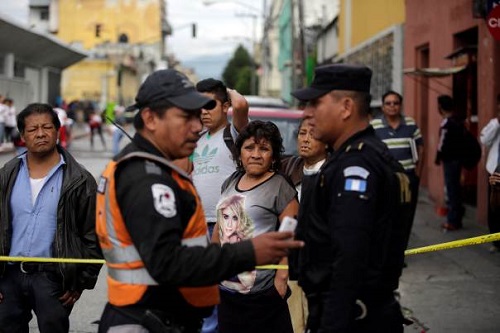Reuters photo
By
Ricardo Swire
A Guatemalan crime-lord was recently granted political asylum in Nicaragua, the Central American nation having developed an affinity to wanted criminals. Such accommodation undermines efforts to address crime and widespread corruption. In 1987 Nicaragua signed an extradition treaty with Costa Rica, El Salvador, Guatemala and Honduras. In 2013 Nicaraguan internal security forces detained and extradited one of the US Federal Bureau of Investigations’ Top 10 Most Wanted felons.
In 2014 the 2018 political asylum designee engineered a US$50 million fraudulent land purchase and construction deal. Such bogus arrangement involved the Guatemalan Social Security Institute (IGSS), regarded as one of the largest public entities in Central America. IGSS spent US$30 million on land actually valued US$1 million. A notary was paid US$2 million to falsify documents and a construction company received US$4 million to draw housing plans for units that would never be built, the cash craftily moved to offshore accounts.
On August 22, 2018 Nicaragua’s Ministry of Foreign Affairs resolution 039-2018 granted the Guatemalan “entrepreneur” political asylum. The awardee is chief suspect in a United Nations/CICIG or Guatemala’s Attorney General Office multi-million dollar Social Security Institute corruption probe. Between 2012 and 2015 the awardee was highlighted by the internal security apparatus. In 2014 he was connected to Mexican, Guatemalan and Colombian drug trafficking syndicates. His influence and business savvy hidden in the shadow of Guatemala’s Minister of Communications Infrastructure and Housing’s money laundering caper.
The Guatemalan government official used three companies ProCredit, Don Nicos S.A and/or GMS S.A to launder US$10 million. He attempted two electronic transfers to company accounts in Nicaragua. The initial cash movement was US$400,000, the second US$500,000 and remainder channeled via other remittance methods. The Deputy General Manager of financial institution “Procredit, Maria Ines Bianco” confirmed the criminal network tried to make electronic transfers, but could not prove origin of funds. The transactions were rejected, accounts closed and authorities notified.
Ricardo Swire
Ricardo Swire is the Principal Consultant at R-L-H Security Consultants & Business Support Services and writes on a number of important issues.



No Comments Yet!
You can be first to comment this post!